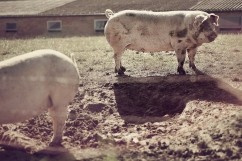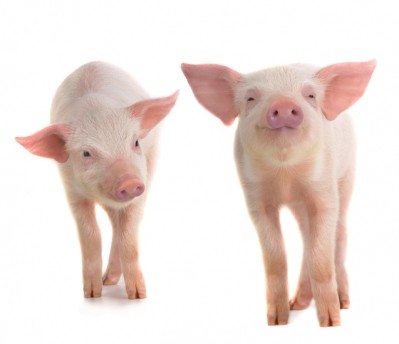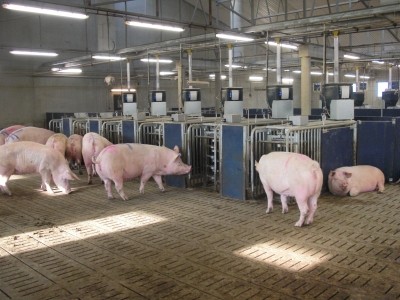US and Canadian feed experts team up to get answers on PED virus

Although PEDv does not affect humans or pork safety, it has infected and killed millions of piglets on farms of all sizes in 27 US states since May 2013 and in four Canadian provinces since January this year.
More than 60 people were present at a recent roundtable discussion in Iowa on how to eradicate the virus and to see if feed may play a role in how pigs are infected.
The event's roll call included producers, veterinarians, nutritionists, academics and government and feed association officials.
“Our main goal was to bring a group of people together to help us agree on research needs related to PEDv and feed systems so that we can get answers to on-going questions as quickly and efficiently as possible," said Dr Paul Sundberg, VP of science and technology at the US National Pork Board, which hosted the gathering.
The participants agreed the virus is of Asian origin genetically, but its direct pathway to North America remains unknown, he said.
And the group concurred that there are multiple ways for pigs to become infected via a fecal-oral route, including environmental, transportation, feed systems and other vectors, added Sundberg.
Research priorities
The research agenda agreed by the participants includes the need to investigate the effectiveness and cost of treatments to mitigate the survival of PEDv and other viruses in feeds.
In February this year, Ontario feed maker, Grand Valley Fortifiers, said porcine plasma in feed may pose a risk of transmission of the PED virus after it was forced to recall feed pellets from its swine producer customers that had “contained live virus capable of infecting pigs.”
The CEO of the feed company, Ian Ross, said that month that the firm had removed all porcine plasma from its feed products and he called on the entire feed sector to learn from its situation and no longer formulate, have manufactured or sell pelleted nursery feed that contains porcine origin ingredients.
But tests by the Canadian regulator in the same month proved inconclusive on a link between PEDv and the feed pellets in question.
Clumsy testing methodologies
Ian Ross was one of the participants in the roundtable discussion.
He told FeedNavigator.com that his “take away” from the meeting was that PEDv “is a complicated issue and still relatively ‘new’ virus which we don’t have all the answers on.”
He added: “Testing methodologies for live virus in feed, rectal swabs or surface swabs are clumsy and time consuming at best. As the industry seeks to better understand and ideally control the future spread of this virus and others like it, more research and development is required.”
Post-processing feed contamination
If feed is a factor in the transfer of PEDv, based on past research, the industry knows that there are specific time and temperature combinations that should inactivate the virus, said Sundberg.
"However, there are many variables that can affect feed, including post-processing contamination, which is another area that must be carefully controlled even if inactivation occurs,” he added.
The academics and industry contributors at the Iowa event also said it was critical to conduct contamination risk assessments at all steps within the feed processing and delivery chain.
And they agreed it was essential to develop a substitute for the currently used swine bioassay testing procedures and to continue to investigate the risk of feed and other pathways for pathogen entry into the US.
David Fairfield, vice president of feed services for the US’s National Grain and Feed Association (NGFA), said the association believes the feed-related research priorities will provide important information that can be used as part of a comprehensive strategy to eradicate the virus.












